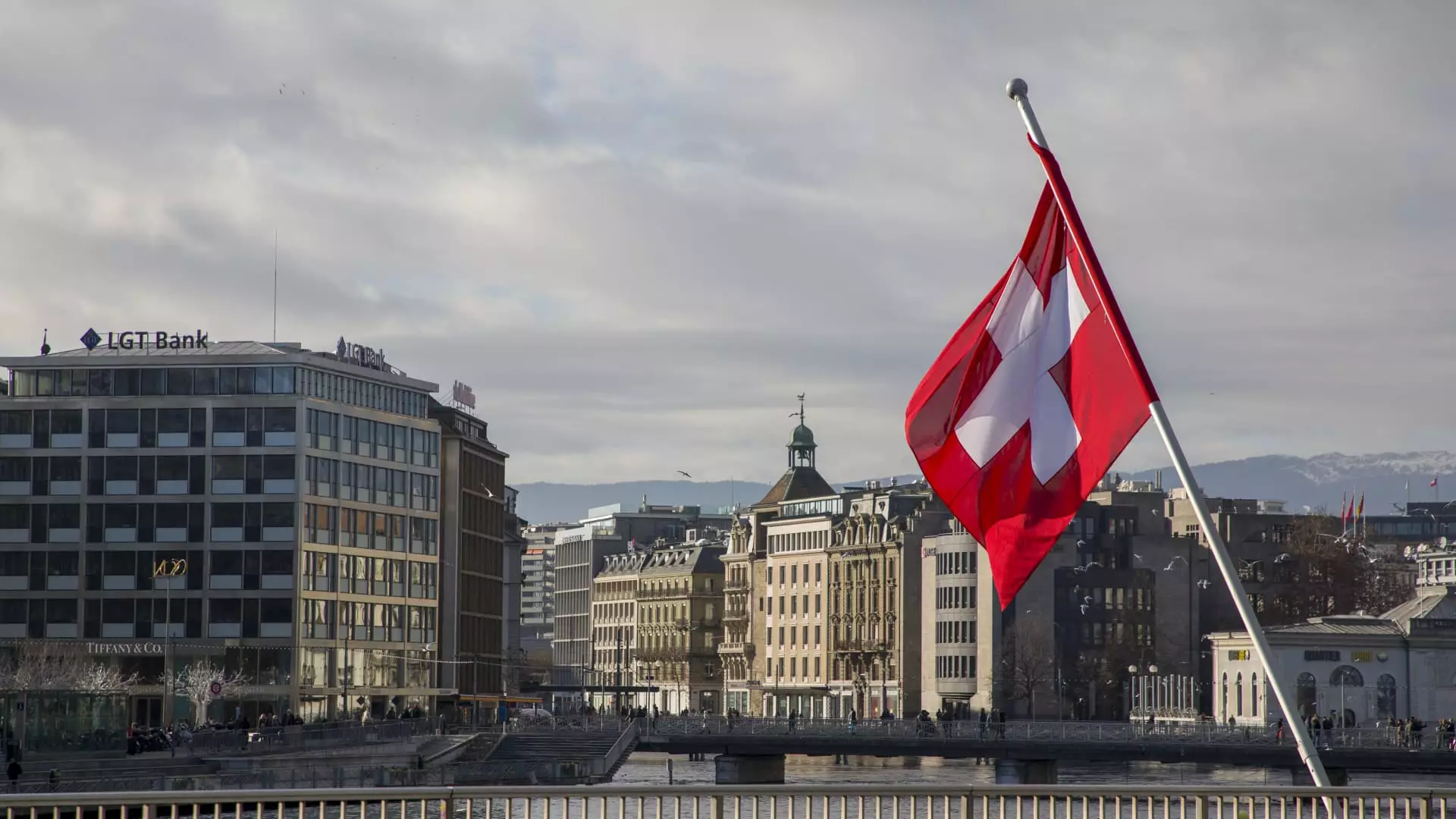In recent times, a remarkable shift has taken place among affluent Americans who are increasingly looking beyond their home country’s banks for financial security. The allure of Swiss banking has seen a resurgence, revealing underlying anxieties about economic stability and political integrity back home. This trend, characterized by an exodus of wealth to the Alpine nation, is more than just a quest for better rates; it represents a profound disillusionment with the U.S. financial landscape.
Switzerland, with its reputation for economic stability, political neutrality, and a robust legal framework, has become the go-to destination for high-net-worth individuals trying to protect their assets. Investors are conscious of the shifting tides in the U.S., from the prevailing economic uncertainty punctuated by escalating national debt to a perceived decline in governmental accountability. Is it any wonder, then, that wealthy Americans want to fortify their financial futures by seeking refuge in Swiss institutions?
Diversifying Away from American Idiosyncrasies
At the heart of this financial migration lies a clear desire for diversification. Many wealth holders are attempting to dilute the risks associated with an economy that seems increasingly unstable, as evidenced by recent precarious political maneuvers and aggressive tariff hikes. A sizable portion of clients acknowledges their concerns regarding the dollar’s declining strength—a legitimate worry given that the U.S. continues to grapple with its mounting financial obligations.
The Swiss franc isn’t merely seen as a mere alternative. It’s perceived as a stabilizer amidst a storm. Such motivations reflect a broader consensus that the American financial system is becoming less conducive to long-term security, pushing hedge fund managers and entrepreneurs alike to explore foreign avenues.
Political Fears Culminate in Financial Actions
Beyond economic fears, there’s an undeniable political dimension intertwined with this banking behavior. Many wealthy individuals have expressed anxiety regarding the erosion of civil liberties and the rule of law in the U.S., particularly during tumultuous political events under the previous administration. This sentiment correlates to a growing apprehension about trust in American institutions—both financial and legal.
As affluent Americans grapple with these existential concerns, Switzerland emerges not just as a banking option, but as a safety net. Whether it’s seeking dual citizenship for more desirable residency or securing physical assets like gold, the motivations reflect a profound yearning for control and resilience in uncertain times.
Regulatory Framework: Alleviating Old Stigmas
Interestingly, the process of opening a Swiss bank account is no longer shrouded in the mystique of tax evasion and secrecy. The narrative is shifting; today, it operates under stringent regulations and compliance with U.S. disclosure laws. This modernized framework transforms what was once viewed as elitist and clandestine into a legitimate strategy for risk management.
Major U.S. banking institutions recognize the shift, even if they cannot directly offer Swiss accounts. However, a growing number of individuals are turning to Swiss banks that have established relationships with the SEC, allowing them to cater to American clients increasingly interested in non-dollar assets. The financial landscape may be changing, but the principles guiding wealth management remain profoundly tied to the quest for safety and security.
This movement to Swiss banks represents more than just a trend; it symbolizes the awakening of a class of individuals unwilling to gamble their hard-earned wealth on an increasingly unreliable domestic scenario. The wealthy are recalibrating their investment strategies, forging pathways to ensure their portfolios do not solely rely on the ups and downs of the American economy.


Leave a Reply